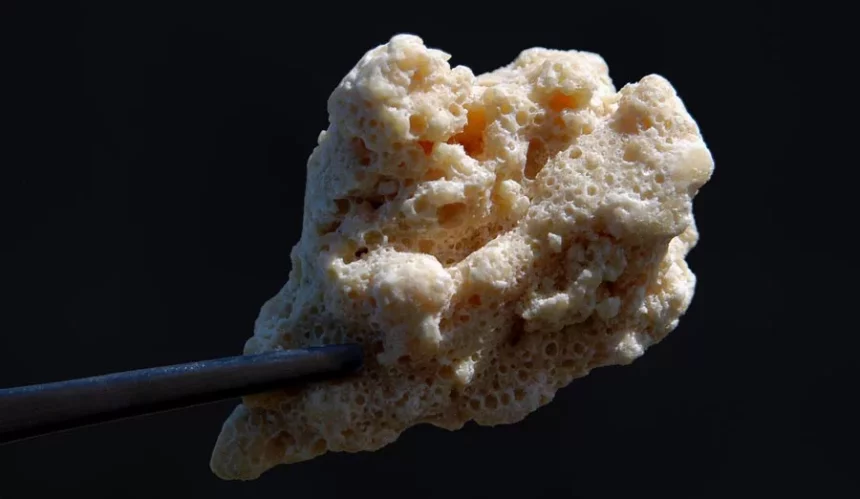It can feel wrong and upsetting to have a suspicion about a loved one but addiction can place immense pressure on many aspects of life and lead to detrimental effects. Substance abuse is a very serious issue that requires proper treatment to recover from it, and both cocaine use and addiction can be hard to detect.
Cocaine use can guide individuals down a dark path and cause them to lose control over their life and experiences. The recovery process is a lifelong one, but there is help and treatment to help individuals regain the life they want.
Keep reading to find out about the signs of cocaine addiction and how to get meaningful help that will be the foundation for a new and sober life!
Cocaine Use and Mental Health
Table of Contents
Our current society lacks knowledge surrounding drug abuse. It is important for us to properly understand general aspects of substance abuse to better protect against it. With our lack of knowledge, individuals are more likely to become addicted.

Addiction is defined as a complex relapsing disorder in which individuals are unable to properly inhibit substance use despite negative consequences. An individual will struggle immensely when trying to stop the use of a substance but addiction makes that experience almost impossible.
Individuals must undergo drug detoxification as well as addiction treatment to recover and retain recovery from substance abuse. Supporting the mental health of these individuals is very important for recovery.
Knowledge around mental health is also severely lacking. Mental health is a major aspect of drug abuse and addiction. Individuals struggling with addiction are very likely also struggling with mental health.
A majority of drug addiction withdrawals tend to be psychological and also is one of the biggest reasons for individuals to relapse. As individuals face lowered experiences during withdrawals such as depressed mood, anxiety, irritability, insomnia, or paranoia, returning to drug use can alleviate some of their ailments. Unfortunately, this is only temporary and actually worsens their issues rather than helping them.
For more information and statistics on drug abuse, visit the Drug Abuse Warning Network (DAWN) from the Substance Abuse and Mental Health Services Administration (SAMHSA) here.
Cocaine Abuse
With understanding cocaine addiction, learn about how cocaine affects an individual to best assist them in receiving the help they need. Abusing cocaine greatly hinders the lives of many individuals.
It has drastic effects on many aspects of an individual’s body, mind, and life. The effects of cocaine addiction can happen in unforeseen ways such as harming their interpersonal relationships.
Ingesting cocaine causes an individual to feel a euphoric rush and large amounts of energy. It affects the brain by stopping chemical messengers, that are naturally found within the body, from being reabsorbed and reused by the body.
This is also what makes cocaine so addictive. Cocaine stops dopamine, one of the chemical messengers, from being reabsorbed. Dopamine is responsible for motivation and pleasure within an individual.
Once the cocaine high resides, an individual is left craving and wanting for more cocaine. Individuals will struggle with properly managing cocaine use due to its addictive qualities.
What Is Crack Cocaine?
Crack cocaine is another form of cocaine that is found in a solid, rock-like form and is most often smoked as a method of ingestion. It is much more potent than powdered cocaine. Crack is more addictive as well as harmful to an individual.
As it is ingested through smoking, it rapidly enters the bloodstream through the lungs and quickly enters the brain. The high from smoking is much stronger than usual cocaine highs and lasts between 15-30 minutes.
When an individual is crashing from the cocaine effects wearing off, they experience intense cravings for crack.
What Are The Signs Of Cocaine Addiction?
Being aware of the cocaine addiction symptoms can help support an individual struggling with cocaine addiction to better recognize their issue. Chronic cocaine use may hinder their mind from properly recognizing the issues with substance abuse.
Cocaine alters the mind and can deteriorate proper functions, especially within the brain. The core parts of cocaine addiction treatment is to assist individuals through rebuilding their lost functions.
The following signs are not definite in the fact that an individual is using cocaine or developing an addiction to cocaine. There are different issues that may cause an individual to show these similar signs.
Weight loss
Because cocaine is a stimulant, many individuals using cocaine will drop a considerable amount of weight. This is due to the action of the drug which involves reducing appetite while increasing metabolic rate.
Change in sleeping habits
Clinical studies and anecdotes alike both associate cocaine with sleep disturbance. They may sleep all day and be up all night or sleep for days and be up continuously for an equal duration.
After ingesting cocaine, there will eventually be a crash or rebound period. This is due to not only lacking more of the drug, but also often because the addict’s body is exhausted from staying up for an unnatural period of time.
Nervousness/Agitation
An individual addicted to cocaine tends to get anxious and irritable in between uses. While high paranoia is common in cocaine abuse, other changes in behavior may include extreme talkativeness while high, or extreme depression when not using.
Money Issues
Money often becomes a problem area given the relative high cost and short-lived nature of the drug. Signs may involve large amounts of cash that is unaccounted for, or being backed up on bill payments. Unfortunately, borrowing or stealing money may also become a problem.
Dilated Pupils
Dopamine release increases with the use of cocaine. Studies associate dopamine with pupil dilation. While other reasons can be the cause of dilated pupils, it is one of the more clearly visible cocaine symptoms.
Nosebleeds
Many cocaine users inhale cocaine through their nostrils, which is referred to as snorting. Doing so can make the area sensitive to bleeding.
Needle Marks
Injection is a major method of ingesting cocaine. The area where the user injects becomes scarred and can be easily recognized. To hide the “tracks”, individuals can wear long sleeves to hide marks on their arms, even in warmer weather. Other common injection sites include the neck and feet.
Headaches

Cocaine can wreak havoc on the blood vessels within the brain. Stress as a result of use can also spur headaches, compounding the condition. Headaches are known as one of the most notorious negative effects of cocaine.
Sexual Dysfunction
For someone who is physically intimate with an individual abusing cocaine, the sexual symptoms are more apparent. Lack of interest in sex or obsession with sex are common, likely due to effects on dopamine.
Shakes and Tremors
Because cocaine speeds up bodily functions, shakiness is another symptom that can be easily detected. Shakes and tremors may set in right after administering the drug or during the coming down phase.
Depression
Cocaine addiction behavior causes euphoria during use and depression upon cessation. A lack of interest or motivation are common results of the drug raising dopamine levels to hypernormal ranges. After the effects of the drug subsides, depressive moods set in.
Cocaine Withdrawal Symptoms
The symptoms of cocaine addiction can include a variety of experiences, many of which are already listed above as signs of cocaine addiction. Withdrawal symptoms can arise very quickly after stopping cocaine use, even if this substance was used rarely.
The main difficulty with the symptoms of cocaine addiction are in the psychological symptoms of cocaine. There are some physical symptoms of cocaine however, these symptoms are quick to recover from.
The body begins healing through removing the substance from the body and allows it to return to its natural functions. The psychological symptoms of cocaine last much longer and are the main factor that makes recovery almost impossible without proper treatment.
An individual will suffer from some, if not all, of the many cocaine withdrawal symptoms. Signs include:
- Agitation
- Depression
- Extreme Fatigue
- Increased appetite
- Insomnia
- Intense cravings
- Suicidal thoughts
Cocaine Overdose
As cocaine is a very toxic substance for the body, an individual can overdose on cocaine. Cocaine influences blood flow and heart rate which places an individual at an increased risk of heart disease or heart conditions such as a heart attack.
A cocaine overdose within an individual may appear as:
- Difficulty breathing
- High heart rate
- Seizures
- Heart attack
- High blood pressure
- High body temperature
How Would You Approach A Loved One With Concerns Of Addiction?
Outright accusing someone of addiction can drive them away and push them into a corner that no one wants to be in. It is important to be non-judgmental of an individual to best support them with getting the help they need.
Assisting a loved one with finding treatment that suits their needs can help show support. It is a great challenge to ask for and reach out for help, especially in a situation such as addiction. Providing that support may give your loved one the path they need to recover.
But while trying to help a loved one, you may forget about caring for yourself. It can be physically and mentally taxing to take on their needs to support them as well as your own. It is important to take care of what you need for yourself as well.
Treating A Cocaine Addiction

The process of treating any addiction typically begins with a drug detoxification program such as a medical detox or partial hospitalization program. Individuals undergo this process to first cleanse their bodies of a substance before receiving addiction treatment.
After the detoxification process is over, an individual is left with the many residual withdrawals from substance abuse and can take on addiction treatment to assist them in learning how to manage without the assistance of a substance.
Cocaine treatment specifically focuses primarily on behavioral treatments to allow individuals to control and manage their experiences themselves. Behavioral therapy provides many strategies and skills for individuals to avoid relapse and maintain recovery and abstinence.
The drug detoxification is a fairly quick process that can take around 1-2 weeks to complete. Addiction treatment is a much longer treatment but varies depending on the individual. Treatment can take from 4-12 weeks to up to a year, depending on the severity of the addiction.
It is important for an individual to receive proper treatment to allow for them to retain and regain control over their lives without worry of relapse.
Find Cocaine Addiction Treatment Quickly and Confidentially
Cocaine is a very intense substance that is often overwhelming for an individual to manage. Trying to find the right treatment and assistance for you or a loved one can be difficult. Here at Find Addiction Rehabs, we make that process easy.
Whether finding a treatment center in your location, or connecting you with recovery tools and resources, our hotline is available 24/7 to make sure you can get the help you need, anytime you need it.
Being reliant on cocaine can cause individuals to suffer even greater hardships. We can help find you the help you need to overcome cocaine abuse. Call us now!


